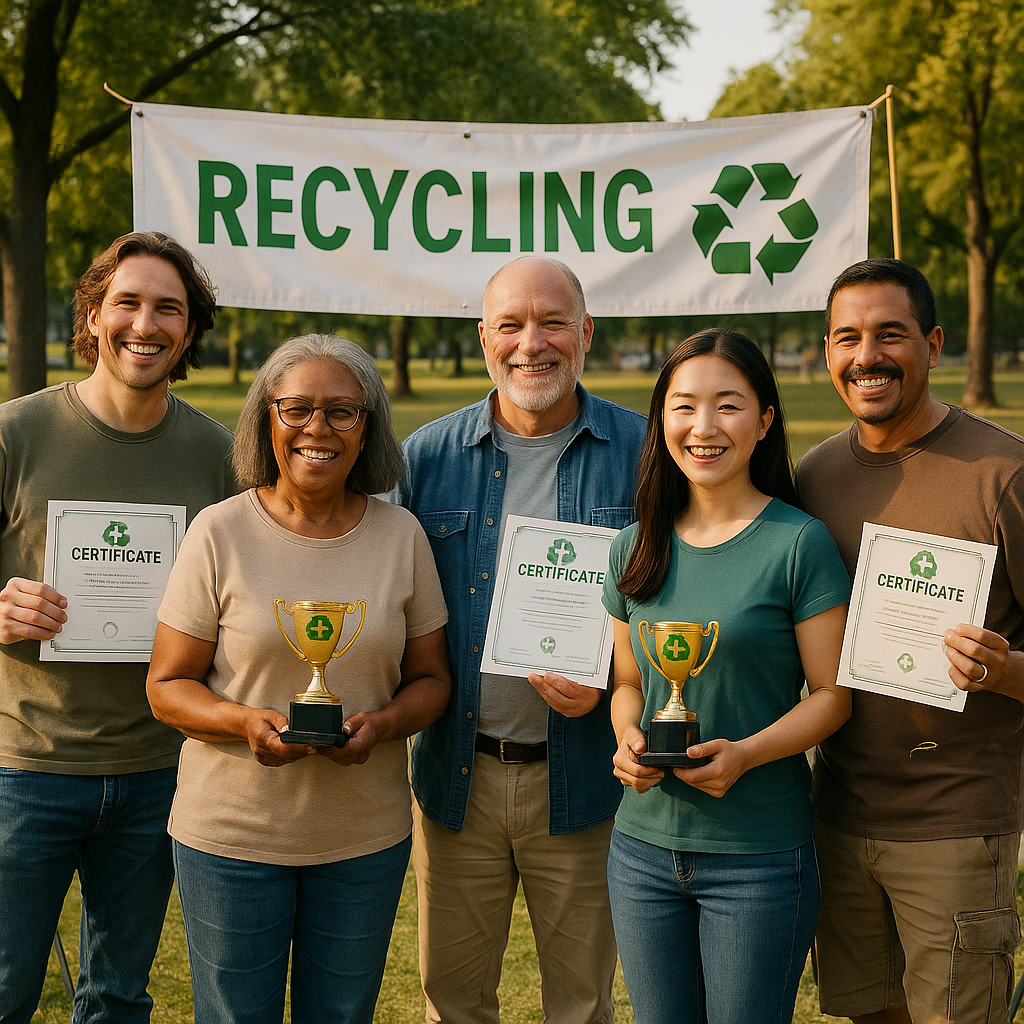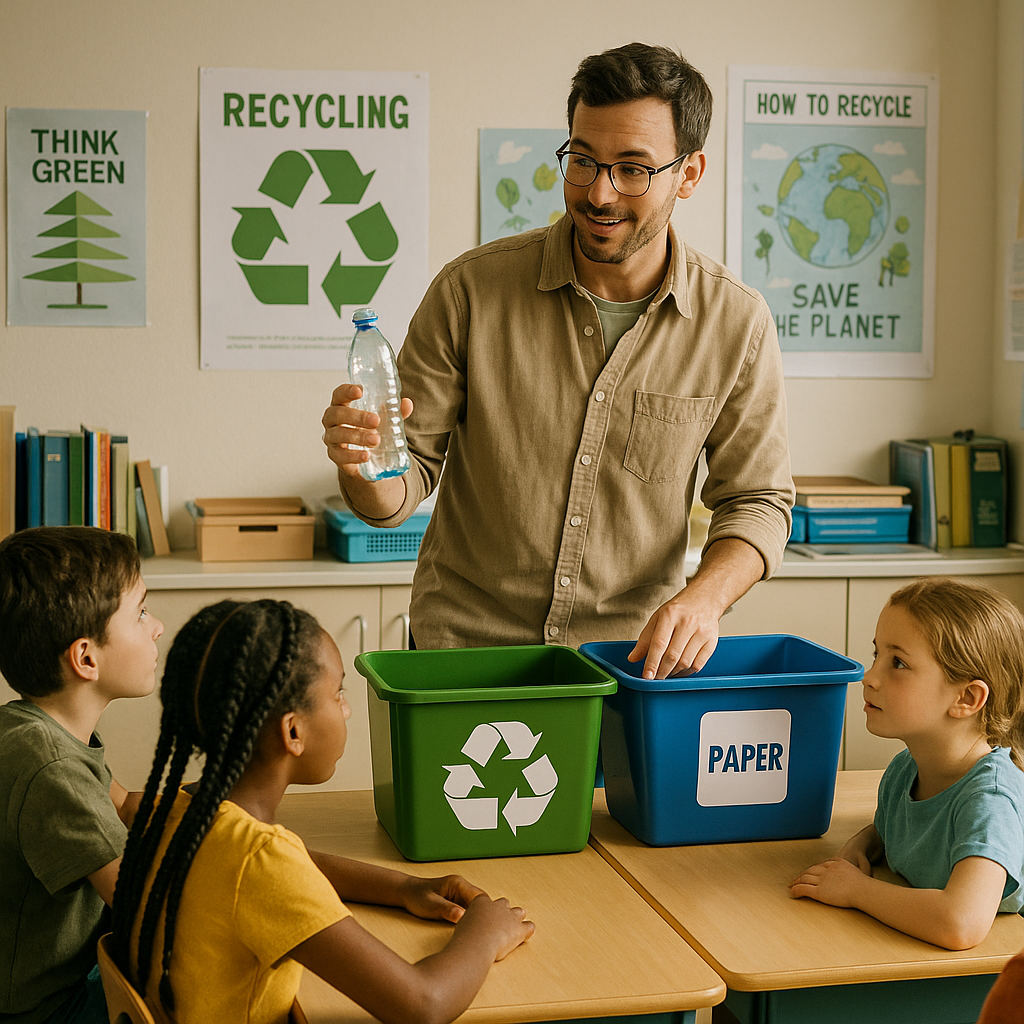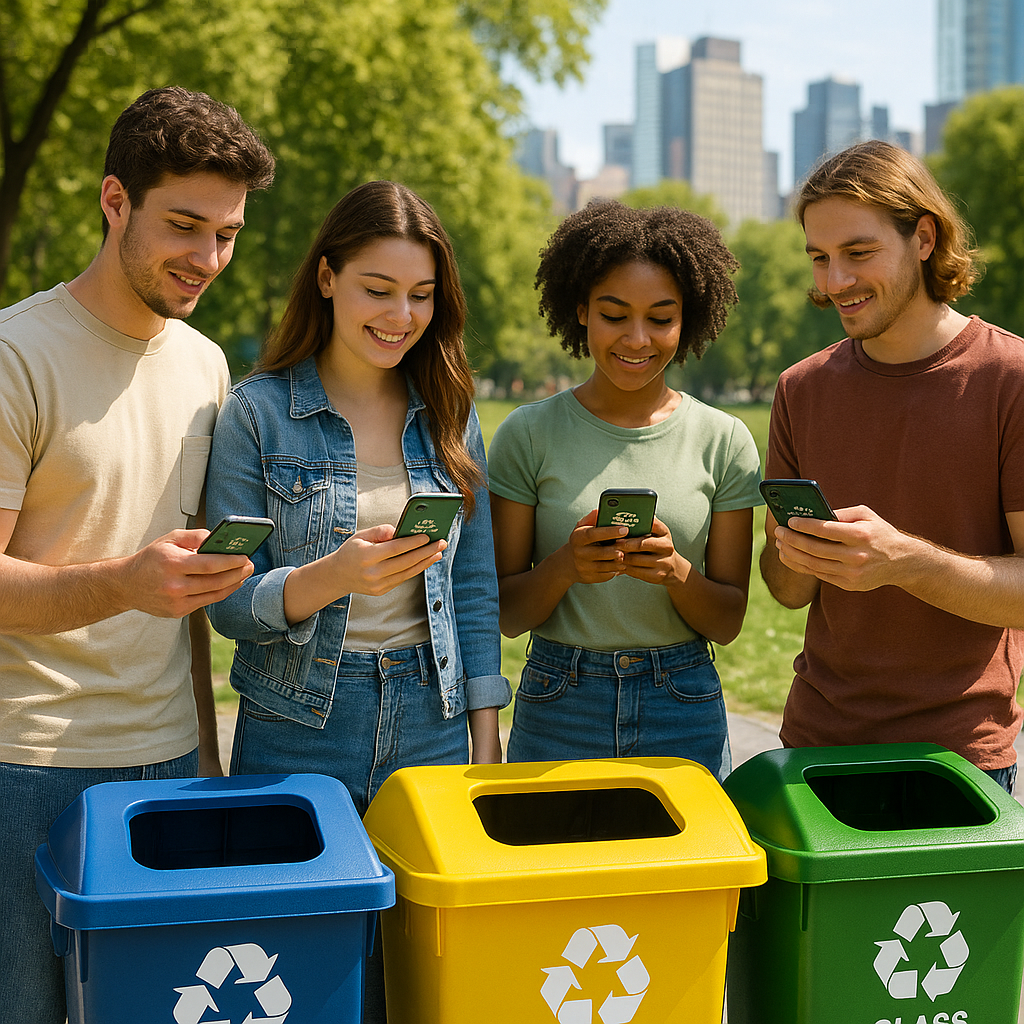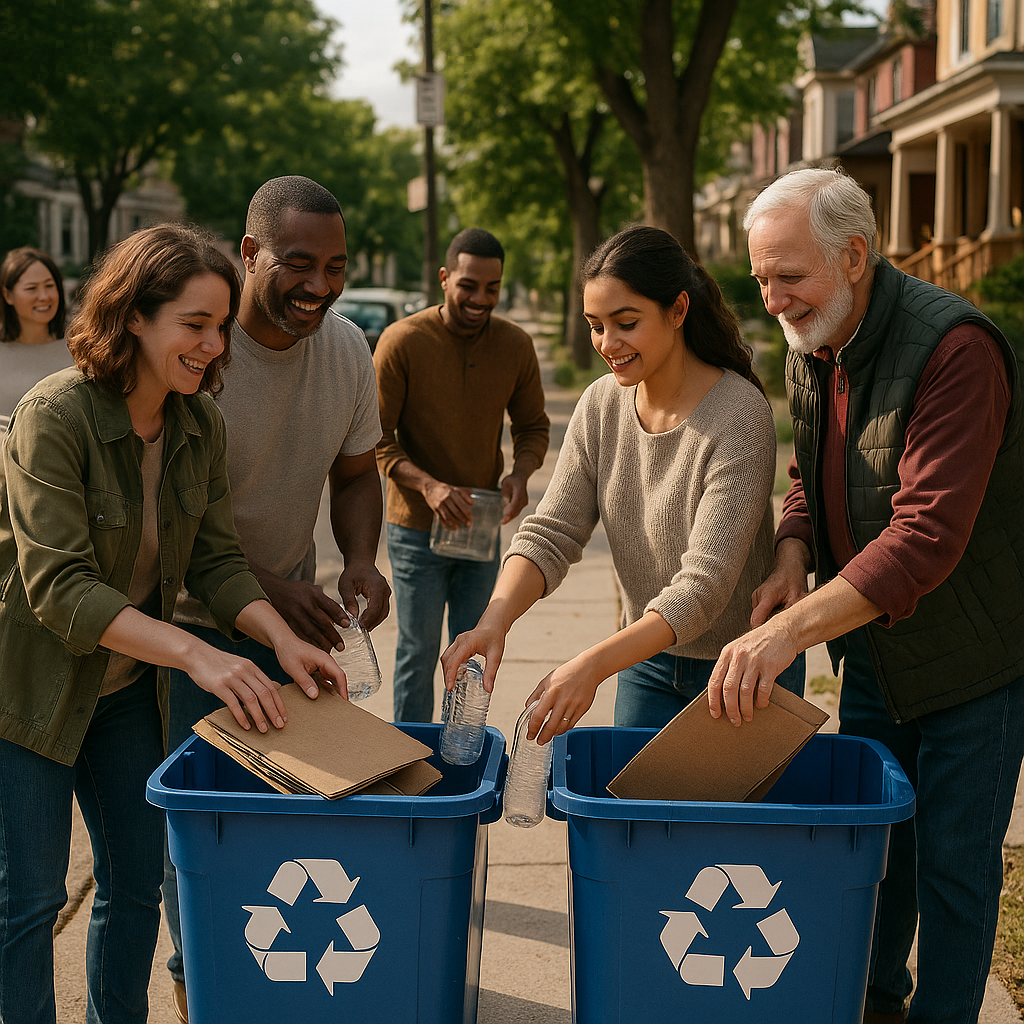5901 Botham Jean Blvd, Dallas, TX 75215
What Are Neighborhood Scrap Recycling Initiatives?
June 19, 2025Each year, over 9 million tons of metal waste end up in U.S. landfills despite being fully recyclable. Neighborhood scrap recycling initiatives are community-based programs aimed at addressing this issue by boosting local metal recycling efforts. These grassroots initiatives turn routine recycling activities into engaging community-building opportunities, offering tangible benefits to participants.
Neighborhood scrap recycling programs primarily create accessible collection systems within communities. Residents can drop off metal items like aluminum cans, copper wire, steel components, and other metal products at designated collection points. These initiatives often feature financial incentives, recognition-based rewards, and educational components to promote sustainable waste management practices.
Unlike traditional municipal recycling programs, neighborhood scrap initiatives focus specifically on metal materials and foster stronger social connections among participants. They nurture a sense of environmental responsibility while strengthening community bonds through collective action. For many communities, these programs serve as an entry point to broader sustainability efforts and provide economic benefits by reducing waste management costs.
How Do Financial Incentives Boost Community Recycling?
Community-focused financial incentives transform recycling from an individual chore into a collective mission with visible benefits. Unlike personal rewards, these incentives create a shared stake in recycling success by directing proceeds toward tangible community improvements. When residents see concrete benefits from their recycling efforts, participation rates typically increase.
Financial incentives that fund local projects establish a direct connection between recycling actions and community enhancement. This approach fosters environmental responsibility and community pride, making recycling more meaningful to participants.
Community Project Funding Models
Scrap drive fundraisers are among the most effective community incentive models. These events collect recyclable materials like metals, electronics, and paper, with proceeds funding specific neighborhood needs rather than rewarding individuals.
Local governments can amplify these grassroots efforts by offering matching funds. When municipalities match proceeds from community recycling initiatives, they effectively double the impact. This demonstrates institutional support for citizen-led sustainability efforts and creates stronger motivation for participation.
Research shows that financial incentives significantly influence recycling behavior. Each community should customize its approach based on local conditions and needs. Successful programs maintain transparency about fund usage and regularly communicate the resulting community benefits.
Successful Community Projects
Playground equipment purchases represent a popular use of recycling proceeds. Communities can directly link their recycling efforts to new slides, swings, and climbing structures. This provides a tangible, visible reward that benefits families and enhances neighborhood gathering spaces.
Community gardens funded through recycling initiatives deliver both environmental and social benefits. These projects create green spaces while producing local food. Residents can literally see the fruits of their recycling efforts growing in their neighborhoods.
Environmental education programs supported by recycling revenue foster sustainable behavior changes. These initiatives teach future generations about waste reduction and resource conservation. Schools can use these funds for field trips, educational materials, and hands-on learning activities.
Public space improvements like benches, trash receptacles, and beautification projects offer visible benefits from recycling income. These enhancements improve quality of life while reinforcing the community benefits of recycling participation.
Implementation Strategies
Successful community incentive programs require clear communication about goals and benefits. Residents need to understand how their participation directly contributes to specific improvements. Regular updates on collection totals, proceeds, and funded projects help maintain engagement.
Partnerships with local businesses can enhance community recycling incentives. Companies might offer matching donations or in-kind contributions to recycling-funded projects. These collaborations amplify the impact of community recycling efforts.
Public celebrations of completed projects create awareness and appreciation. Events showcasing new playground equipment, garden spaces, or other improvements highlight the connection between recycling and community benefits. These celebrations recognize contributions while encouraging continued participation.
Small communities can implement cooperative collection initiatives with neighboring towns. This approach pools resources to increase recycling volume and efficiency. Shared proceeds can fund projects benefiting multiple communities, extending the impact of recycling incentives.
| Project Type | Description | Community Benefits |
|---|---|---|
| Playground Equipment | New slides, swings, and climbing structures funded through recycling proceeds | Visible rewards, immediate gratification for participants, enhanced recreational spaces |
| Community Gardens | Green spaces and local food production funded by recycling initiatives | Environmental and social benefits, visible results growing in neighborhoods |
| Environmental Education Programs | Programs teaching waste reduction and resource conservation | Sustainable behavior changes, funding for field trips, educational materials, and hands-on learning |
| Public Space Improvements | Benches, trash receptacles, and beautification projects | Improved quality of life, visible benefits from recycling income |
| Scrap Drive Fundraisers | Collection events for recyclable materials with proceeds funding community needs | Effective community incentive, funds directed to specific local projects |
| Local Government Matching Funds | Municipalities match proceeds from community recycling efforts | Doubles impact, demonstrates institutional support for grassroots programs |
What Recognition-Based Incentives Work Best?

Recognition-based incentives are powerful motivators for recycling. Unlike financial rewards, these incentives appeal to our desire for social approval and community belonging. Public acknowledgment of recycling efforts inspires others, creating a positive ripple effect throughout the community.
Public recognition through local media effectively spotlights recycling champions. Communities that feature top recyclers in newspapers, social media, or newsletters create visible role models. This visibility transforms everyday recycling actions into noteworthy achievements. Seoul exemplifies this by tracking residents’ recycling contributions and publicly recognizing top performers.
Appreciation events celebrate recycling successes collectively. Annual ceremonies where certificates, plaques, or trophies are presented to dedicated recyclers reinforce the value of these efforts. These gatherings strengthen community bonds around shared environmental values and foster pride in sustainable practices.
Monthly Recognition Programs
Monthly or quarterly recognition programs sustain momentum for recycling initiatives. Regular acknowledgment of “Top Recyclers” in community spaces maintains engagement and encourages healthy competition. These consistent recognition cycles keep recycling at the forefront of community consciousness and provide regular opportunities for new participants to be celebrated.
Recognition programs for schools and businesses extend the impact beyond individuals. Competitions between classrooms or departments generate enthusiasm, while educational institutions and companies recognized for their recycling achievements often become sustainability ambassadors, developing innovative approaches that can be replicated elsewhere.
Social media recognition campaigns use digital platforms to amplify recycling success stories. Creating dedicated hashtags for community recycling efforts allows residents to share their contributions and build an online community around sustainability. These digital acknowledgments expand the reach of recognition programs and engage younger demographics.
Community-Wide Recycling Challenges
Community-wide recycling challenges with public leaderboards combine recognition with friendly competition. Towns or neighborhoods might compete to achieve the highest recycling rates, with progress tracked in visible locations. Winners receive public acknowledgment and sometimes grants for community environmental projects. This approach motivates entire neighborhoods to work together toward common sustainability goals.
The most effective recognition programs share key characteristics: they are consistent, visible, and authentic. Recognition must be regular enough to maintain interest but selective enough to remain meaningful. It should be prominently displayed where community members will notice it and must genuinely celebrate real achievements rather than token participation.
Simple signage programs that identify households or businesses as “Recycling Champions” with yard signs or window decals serve as daily visual reminders of community values. These visible symbols create neighborhood conversations about recycling practices and establish new social norms around proper waste management.
When community members see their neighbors celebrated for recycling excellence, it normalizes these behaviors and establishes them as aspirational. Recognition programs don’t just reward current participants—they inspire new ones, creating a self-reinforcing cycle of community engagement in environmental stewardship.
| Incentive Type | Benefits | Implementation | Target Audience |
|---|---|---|---|
| Public Recognition | Spotlights recycling champions, inspires community participation, creates visible role models | Features in local media, newsletters, social media platforms | Individuals, households |
| Appreciation Events | Celebrates collective recycling successes, builds community relationships | Annual ceremonies with certificates, plaques, or trophies | Dedicated recyclers, community members |
| Monthly Recognition Programs | Maintains engagement, creates healthy competition | Regular acknowledgment of “Top Recyclers” in community spaces | All community members |
| School and Business Recognition | Generates enthusiasm, fosters sustainability ambassadors | Competitions between classrooms or departments | Educational institutions, companies |
| Social Media Campaigns | Amplifies success stories, engages younger demographics | Dedicated hashtags, online community building | Digital-savvy residents |
| Community Challenges | Motivates neighborhoods, tracks progress with leaderboards | Town or neighborhood competitions with public tracking | Entire communities |
| Signage Programs | Creates visual reminders, establishes social norms | Yard signs or window decals for “Recycling Champions” | Households, businesses |
How Do Educational Incentives Promote Sustainable Recycling?

Educational incentives transform recycling from a basic civic responsibility into an engaging activity with lasting environmental impact. By linking academic advancement with environmental stewardship, these programs motivate students and communities to embrace sustainable waste management practices. Rather than viewing recycling as just another chore, participants see tangible benefits that directly affect their educational futures.
Scholarship Programs as Recycling Catalysts
Scholarship programs tied to recycling initiatives provide compelling reasons for students to participate in environmental conservation. Community-sponsored scholarships reward students who demonstrate commitment to recycling and waste reduction with financial assistance for higher education. These programs create direct financial incentives for environmental action, making sustainability efforts personally relevant to students planning their academic futures.
For example, The Recycling Partnership has implemented scholarship programs in several communities where high school students who lead recycling initiatives can earn college funding. Students track their recycling efforts, organize community clean-up events, and develop innovative waste reduction strategies. For many, these scholarships make higher education more accessible while reinforcing the importance of environmental stewardship.
The long-term impact of these programs extends beyond immediate recycling goals. Students who receive recycling-based scholarships often become environmental advocates throughout their academic and professional careers. This creates a multiplier effect where each scholarship recipient influences peers and continues promoting sustainable practices in new settings.
School Supply Incentives and Classroom Resources
Schools frequently struggle with limited budgets for classroom materials. Recycling-based incentive programs address this challenge by providing school supplies and educational resources to institutions that implement successful recycling initiatives. These tangible rewards make recycling directly relevant to educational quality, motivating entire school communities to participate.
Programs like “Recycle-to-School” convert recyclable materials into points that schools can redeem for supplies. Schools track their recycling volumes and, based on performance, receive items ranging from books and art supplies to technology resources. This system creates immediate, visible benefits that enhance the learning environment while teaching practical sustainability lessons.
The connection between recycling action and educational resources helps students understand the real-world value of conservation. When students see new classroom materials arrive as a direct result of their recycling efforts, they develop a deeper appreciation for resource conservation and circular economy principles.
Curriculum-Based Recycling Programs
Educational incentives work most effectively when integrated directly into school curricula. Curriculum-based recycling programs provide lesson plans, activities, and educational frameworks that make sustainability education a core part of student learning. These programs offer teachers ready-made resources that align with educational standards while promoting environmental awareness.
Schools implementing these curriculum-based approaches report higher student engagement with both recycling activities and related academic subjects. For instance, recycling programs integrated with science classes help students understand decomposition rates, material properties, and environmental chemistry. Math classes use recycling data to teach statistical concepts and measurement skills.
The educational value extends beyond science and math. Language arts teachers use recycling themes for writing assignments and research projects. Social studies classes explore how waste management affects different communities and economies. This cross-disciplinary approach ensures that recycling becomes relevant across the entire educational experience.
Grants for Educational Recycling Innovation
Grant programs that fund innovative educational approaches to recycling represent another powerful incentive. Schools and educational organizations can access funding for projects that combine recycling with educational objectives. These grants enable initiatives that might otherwise be impossible due to budget constraints.
Educational institutions use these grants to develop innovative programs like campus recycling labs, waste audit projects, and community education centers. The funding often supports both physical infrastructure (such as specialized recycling stations) and educational components (like workshops and curriculum development). The most successful grant-funded projects create sustainable models that continue beyond the initial funding period.
Competition for educational recycling grants also stimulates innovation. Schools and teachers develop increasingly creative approaches to make recycling education engaging and effective. The results include student-designed recycling systems, artistic projects using recyclable materials, and community outreach initiatives led by students.
Fostering Generational Change in Recycling Habits
Perhaps the most significant impact of educational recycling incentives is their role in fostering generational change in recycling habits. Unlike adult populations whose habits are often firmly established, young students are developing lifestyle patterns that will persist throughout their lives. Educational incentives shape these patterns at a formative stage.
Students who participate in incentivized recycling programs during their educational years typically maintain these practices into adulthood. They bring recycling habits home, influencing family practices and becoming environmental advocates in their communities. This creates a ripple effect where one generation’s education transforms broader societal norms around waste management.
The long-term benefit of this generational shift cannot be overstated. While immediate recycling increases are valuable, the lasting cultural change represents the true success of educational incentive programs. These young recyclers become tomorrow’s business leaders, policymakers, and parents, carrying sustainable values into each of these roles.
| Type of Educational Incentive | Impact on Participation | Additional Benefits |
|---|---|---|
| Scholarship Programs | High participation among students planning for college | Creates environmental advocates throughout academic careers |
| School Supply Incentives | Increased school-wide participation | Provides tangible classroom resources while teaching sustainability |
| Curriculum-Based Programs | 30% increase in recycling rates within six months | Integrates sustainability across multiple subject areas |
| Educational Workshops | Deeper understanding of why recycling matters | Empowers families to make informed decisions about consumption and disposal |
| Recycling-Based Science Projects | Makes abstract environmental concepts concrete | Develops both environmental awareness and critical thinking skills |
| Community Education Campaigns | 50% increase in recycling participation | Creates long-term behavioral change in consumption and disposal habits |
What Digital Strategies Enhance Community Recycling Programs?

Social media platforms have transformed community engagement with recycling initiatives. Facebook, Instagram, and Twitter effectively share infographics on proper recycling practices and highlight successful community efforts. Regular posts featuring local recycling achievements foster community pride and momentum. These platforms also facilitate real-time discussions about available recycling options in neighborhoods.
Mobile applications offer convenience unmatched by traditional recycling education. Apps with collection day reminders reduce confusion about pickup schedules. Many apps include barcode scanning functionality to instantly inform users whether an item is recyclable in their area. Location-based services guide residents to the nearest drop-off points for specialized items like e-waste or hazardous materials.
Email newsletters provide timely updates directly to community members. Regular communications about collection progress help residents see their collective impact. Newsletters can announce special recycling events, explain program changes, and highlight successful waste reduction achievements. These direct communications maintain consistent engagement with recycling initiatives throughout the year.
Data Collection for Program Improvement
Digital tools enhance data collection for program improvement. Online surveys gather valuable feedback on recycling challenges faced by community members. Digital tracking systems monitor participation rates and contamination issues across neighborhoods. This data helps municipalities adjust their programs for maximum effectiveness and target areas needing additional support.
Interactive educational content makes learning about recycling more engaging. Online quizzes test and improve residents’ knowledge about proper sorting. Video tutorials demonstrate correct preparation of recyclables, reducing contamination issues. Digital games introduce recycling concepts to younger community members, building lifelong sustainable habits.
Real-time updates through digital channels create urgency and motivation. Push notifications alert residents about upcoming special collection events. Community recycling dashboards display progress toward collective goals. Digital leaderboards recognize neighborhoods with high participation rates, fostering friendly competition that drives increased engagement.
Strategic Social Media Campaigns
Targeted social media campaigns designed specifically for recycling initiatives yield impressive results. Content highlighting good recycling practices reaches residents where they spend time online. Environmental organizations can partner with local influencers to amplify recycling messages. Creating recycling-focused online communities allows members to share tips and success stories.
Hashtag campaigns unite community efforts under a common theme. Visual content showing proper sorting techniques performs particularly well on platforms like Instagram. Live streams of recycling facility tours demystify what happens after collection. Regular Q&A sessions address common misconceptions about local recycling programs.
Mobile Solutions for On-the-Go Recycling
Purpose-built recycling apps solve common participation barriers. GPS-enabled applications direct users to specialized recycling facilities for items like batteries or electronics. Some apps gamify the recycling experience, awarding points for consistent participation. Integration with municipal waste management systems provides accurate, up-to-date information about acceptable materials.
Mobile solutions particularly benefit multi-family housing communities where recycling participation typically lags. Digital tools help overcome space limitations with creative storage solutions. Apps connecting neighbors facilitate shared recycling trips to drop-off centers. Mobile platforms enable property managers to communicate program updates efficiently.
The accessibility of digital tools makes recycling more inclusive. Translation features in recycling apps overcome language barriers in diverse communities. Voice-enabled functions ensure those with visual impairments can access recycling information. Location services help identify accessible recycling points for residents with mobility challenges.
Digital technologies are not just enhancing recycling programs; they are transforming how communities approach waste management by providing personalized, accessible, and engaging solutions for residents of all backgrounds.
| App Name | Platform | Key Features | Best For |
|---|---|---|---|
| iRecycle | iOS, Android, Web | Comprehensive recycling database, drop-off locations, search directory for all types of products | Finding accessible recycling venues and learning different ways to recycle materials |
| RecycleSmart | iOS, Android | Location-based collection points, search functionality, reporting capabilities | Finding the nearest recycling drop-off spots and learning if items are recyclable |
| Recycle Coach | iOS, Android | Trash and recycling day reminders, special collections info, search function for sorting waste | Improving recycling habits and reducing contamination |
| Recycle Right | iOS, Android | A-Z materials guide, nearby recycling locations, handy tips, leftover recipes | Improving recycling knowledge and understanding which items go in which bins |
| UZED | Android, iOS | Multi-material recycling support, location-based services | Recycling various types of materials |
| Grow Recycling | iOS, Android | Educational game for kids, teaching proper disposal of 100+ materials | Teaching children about recycling and sustainability |
Conclusion: Maximizing Community Participation in Scrap Recycling

Successful scrap recycling initiatives thrive on a variety of incentives that cater to different motivations within communities. Financial incentives directed toward visible community improvements create tangible benefits everyone can appreciate. Recognition-based rewards build community pride by showcasing environmental leaders and fostering healthy competition between neighborhoods. Educational incentives connect recycling efforts to community advancement through scholarships and school supplies, while digital strategies make participation more accessible and convenient for all residents.
This comprehensive approach transforms occasional recyclers into committed environmental stewards, fostering a sustainable recycling culture with significant benefits. Communities that implement these strategies experience reduced landfill waste, conservation of natural resources, lower waste management costs, and stronger social bonds. For professional guidance on implementing effective recycling programs in your community, contact Okon Recycling at 214-717-4083.
